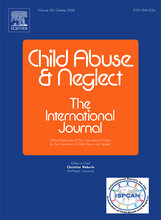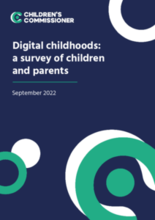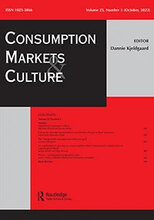Displaying 961 - 970 of 10391
This U.S.-based study seeks to determine if COVID-19 has resulted in unique impacts on foster care alumni, and if these impacts are the same for LGBTQ+ and non-LGBTQ+ transition age youth.
The aim of this systematic review is both to summarize findings regarding the prevalence of mental health disorders among unaccompanied refugee minors (URM) in European countries since the last available systematic review (October 2017), and to describe associated risk factors.
This is the CRC Committee’s report to the 77th session of the UN General Assembly which includes a section on the Day of General Discussion (DGD) on children’s rights and alternative care and the recommendations emanating from that process
This Hope and Homes for Children publication provides critical lessons learned, practical evidence and recommendations to support global, regional and national decision makers to build political will, strategies, policies, and target funding to transform care systems.
This paper aims to enable policy makers, civil society and advocacy groups to better articulate the value of the social service workforce in health systems through a presentation of the latest evidence on social service workforce roles, functions and promising practice models, and related influence on health outcomes and costs. Based on interviews, research and data from a range of countries, it outlines key challenges, opportunities and recommendations around effective and sustained deployment of the social service workforce when located in or linked to health facilities.
Although care reform is well established in some parts of the Eastern and Southern Africa, many countries in the region are just beginning their care reform journey. This short paper is aimed at these contexts. It explains what care reform is, the different components of care reform, why care reform is important and how to start a care reform process.
Key lessons learnt on how to carry out effective care reform in Eastern and Southern Africa from the COVID 19 pandemic.
This report aims to understand digital childhoods, and what can be achieved through the Online Safety Bill to protect children online. The Children’s Commissioner’s Office (CCo) commissioned a survey of 2,005 children aged 8-17 and their parents. This survey is nationally representative of children in England, by age, gender and region. All statistics mentioned in this report are from this survey.
The aim of this study was to investigate (a) the extent to which child maltreatment co-occurs with parental separation and (b) associations between different types of child maltreatment and various types of separation-associated interparental conflict. This cross-national comparative study on family dynamics was based on National survey data of the US, Russia and 17 European countries indicates that in these countries 10–44% of the couples with children had separated before one of their children reached the age of 15 years.
This paper examines the understanding of poverty emerging in voluntourists’ accounts of their first-hand experiences of poverty alleviation. Based on the ethnography of an orphanage in Nepal, the authors show that despite voluntourists’ good intentions and even (self-)criticism of the volunteer tourism approach to poverty relief, their accounts tend to consolidate rather regressive ideas about poverty.










